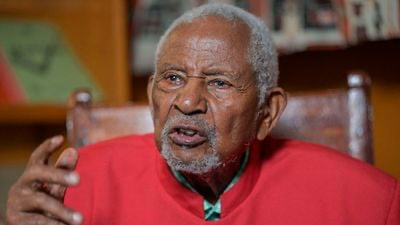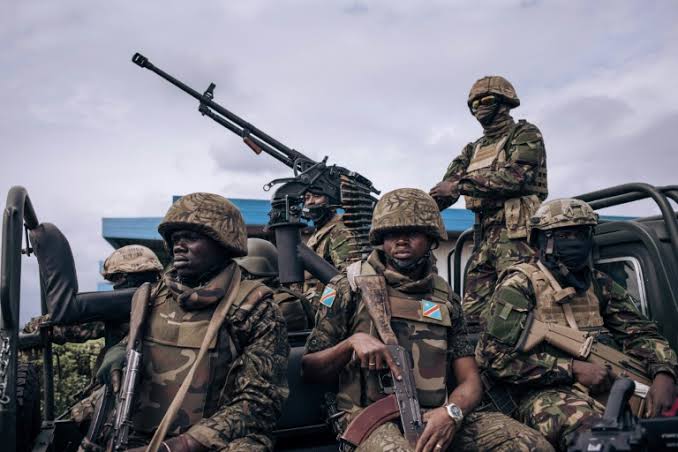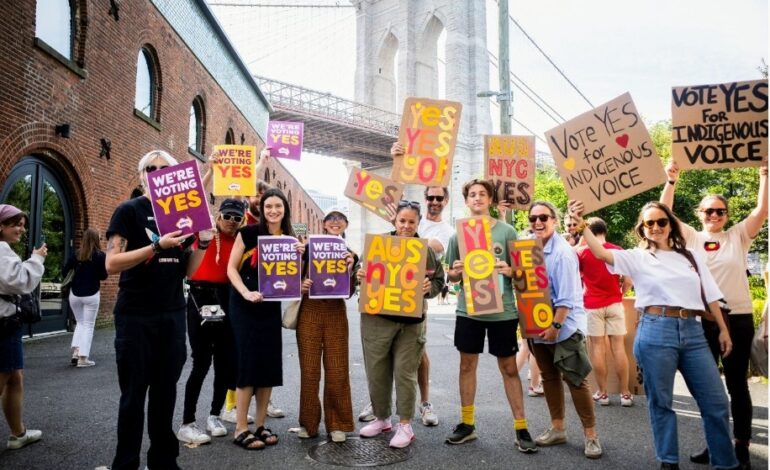
Faith Nyasuguta
Over sixty years following his imprisonment, torture, and deprivation of food in a British-run labor camp in Kenya, anti-colonial activist Gitu Wa Kahengeri (pictured above) continues to seek justice.
In his nineties, he intensifies his campaign for an apology and compensation from the British government, timed with King Charles III’s upcoming visit to Kenya next week.
Gitu ended his education as a teenager due to a clash with the school principal regarding his anti-colonial convictions. In his youth, he joined the notorious Mau Mau rebels. Over a span of nearly eight years, these guerrillas, often with dreadlocked hair and garbed in animal skins, struck fear into colonial communities, conducting attacks from concealed forest bases.
“We fought to be free because the colonial settlers had grabbed all the fertile land and made it their own,” Gitu told AFP during an interview at his home surrounded by pineapple farms outside the town of Thika.
“The cruel… ill-treatment that was meted to the Africans by the colonial administration, I was one to suffer that.”
The verdant, undulating hills and rich woodlands of central Kenya, formerly referred to as the “white highlands,” held immense appeal for colonial settlers.
However, this fervent desire for the land stirred deep resentment among Gitu’s Kikuyu people, who were forcibly displaced. Several months into the 1952 rebellion, British Prime Minister Winston Churchill declared a state of emergency, ushering in a ruthless crackdown.
Tens of thousands of people were rounded up and detained without trial in camps where reports of executions, torture and vicious beatings were common.
A year into the violent conflict, Gitu, along with his father, was apprehended and exiled to a distant island in the Indian Ocean.
“We left our children at home, suffering, having no food, having no medical care and having no education,” Gitu said, recalling his seven-year detention in painstaking detail, his sharp memory belying his age.
APPALLING ATROCITIES
The Mau Mau uprising resulted in the death of over 10,000 individuals, a toll some historians argue is a conservative estimate.
Tens of thousands of Kenyans, even those unaffiliated with the Mau Mau, were subjected to horrifying mistreatment, including torture and gruesome sexual mutilation, inflicted by security forces.
Buckingham Palace said Charles and his wife Queen Camilla will “acknowledge the more painful aspects” of colonial history during their four-day state visit from October 31.

“His Majesty will take time during the visit to deepen his understanding of the wrongs suffered in this period by the people of Kenya,” the palace said.
However, Gitu fully appreciates the symbolism of this visit, especially considering that it is King Charles’s first visit to a Commonwealth nation since ascending to the throne.
“If I were given a place and a chance to speak to the king… the first question I would ask him is why did you keep silent?“
A former parliamentarian elected in 1969, Gitu urged Charles to “genuinely and willingly” repatriate any artifacts taken from Kenya and move beyond a mere public statement of remorse for the past atrocities.
In 2013, the UK consented to compensate over 5,000 Kenyan victims of the revolt, reaching an out-of-court settlement worth almost £20 million (approximately $25 million today).
Additionally, Britain funded a memorial for all victims, a rare instance of former colonial powers acknowledging a colonial uprising.
NOT PLEADING
However, Gitu asserted that the “modest settlement” had not significantly improved the financial situation of most Mau Mau veterans. He called upon the British government to take further steps in fostering the reconciliation sought by the survivors.
Gitu emphasized that this was not a plea but a rightful demand, and he also criticized the Kenyan authorities for not adequately recognizing the contributions of former fighters.
“None of the governments has looked after the freedom fighters in the way they deserved,” said Gitu, who also heads a Mau Mau veterans’ association.
“We are not begging; we are asking for our rights.“
Kenya’s first president, Jomo Kenyatta, disapproved of the violence associated with the Mau Mau rebellion, which caused significant divisions among communities, particularly those who had dealings with colonial authorities.
Surviving Mau Mau fighters have accused successive Kenyan governments of neglect, noting that the group remained outlawed until 2003. In 2007, the government finally unveiled a statue of Dedan Kimathi, a prominent Mau Mau leader, in Nairobi, marking half a century since his execution by colonial authorities.
While Gitu awaits a royal apology, Kenya’s historical treatment of the Mau Mau movement continues to evoke deep-seated emotions.
“It is a great loss to have lost the education of our children, the good health of our children and in the end to have lost recognition.“
RELATED:




